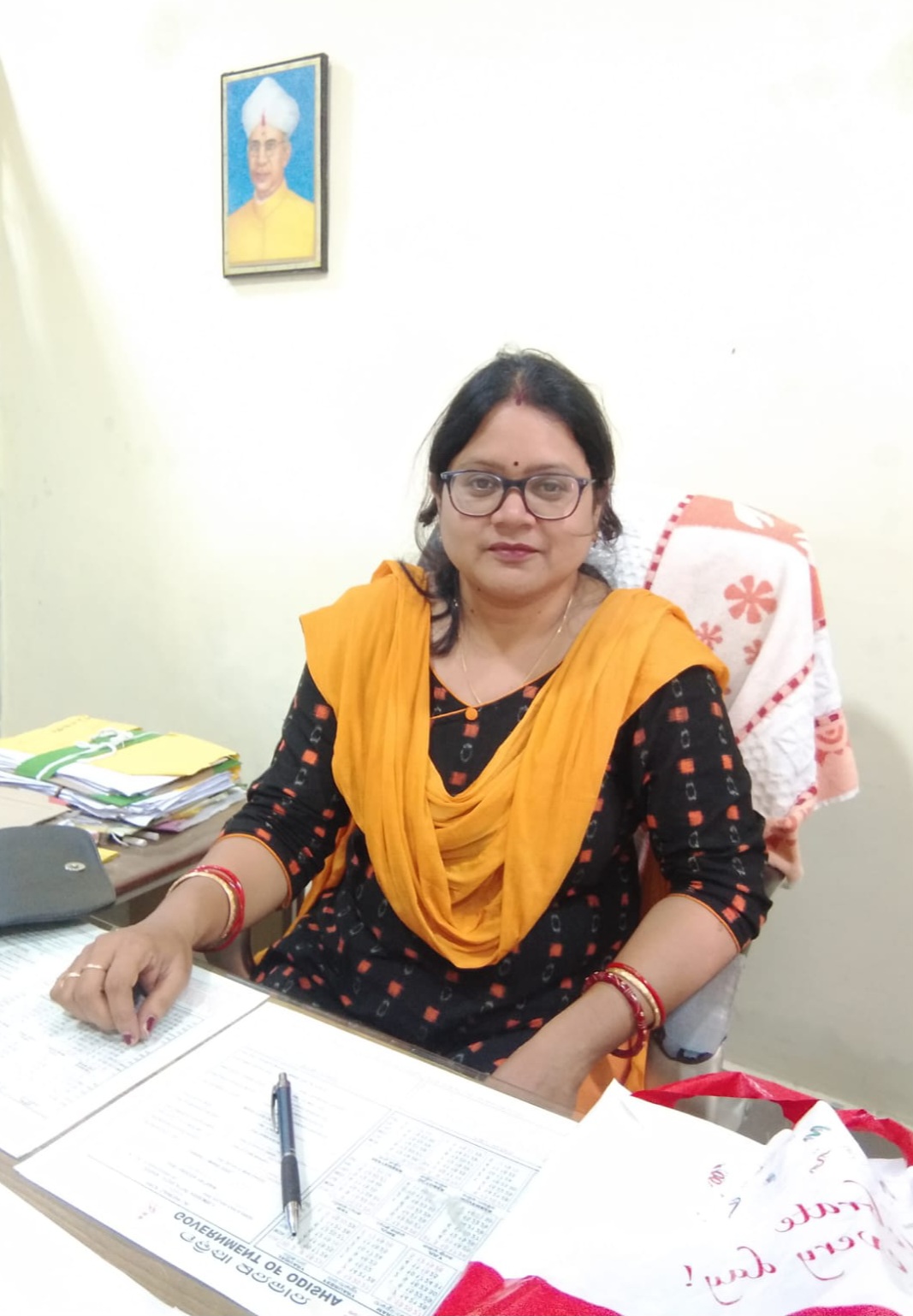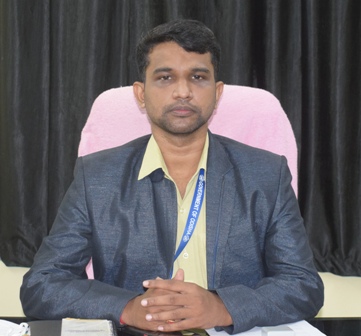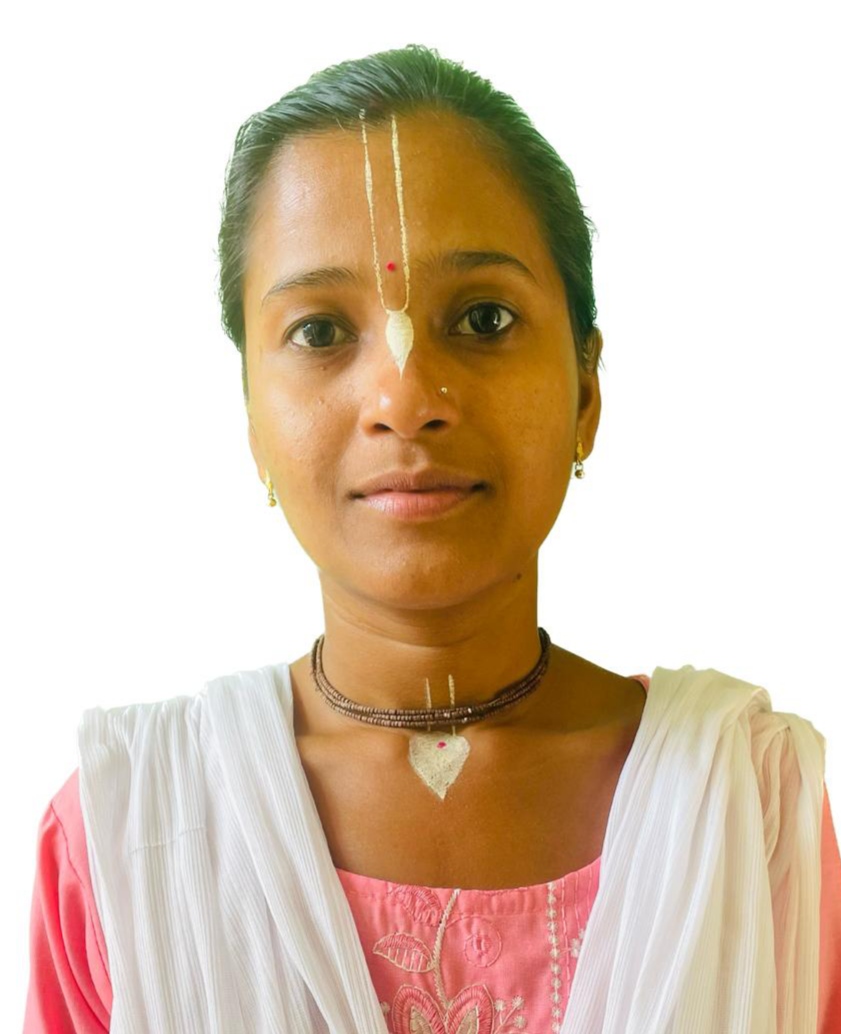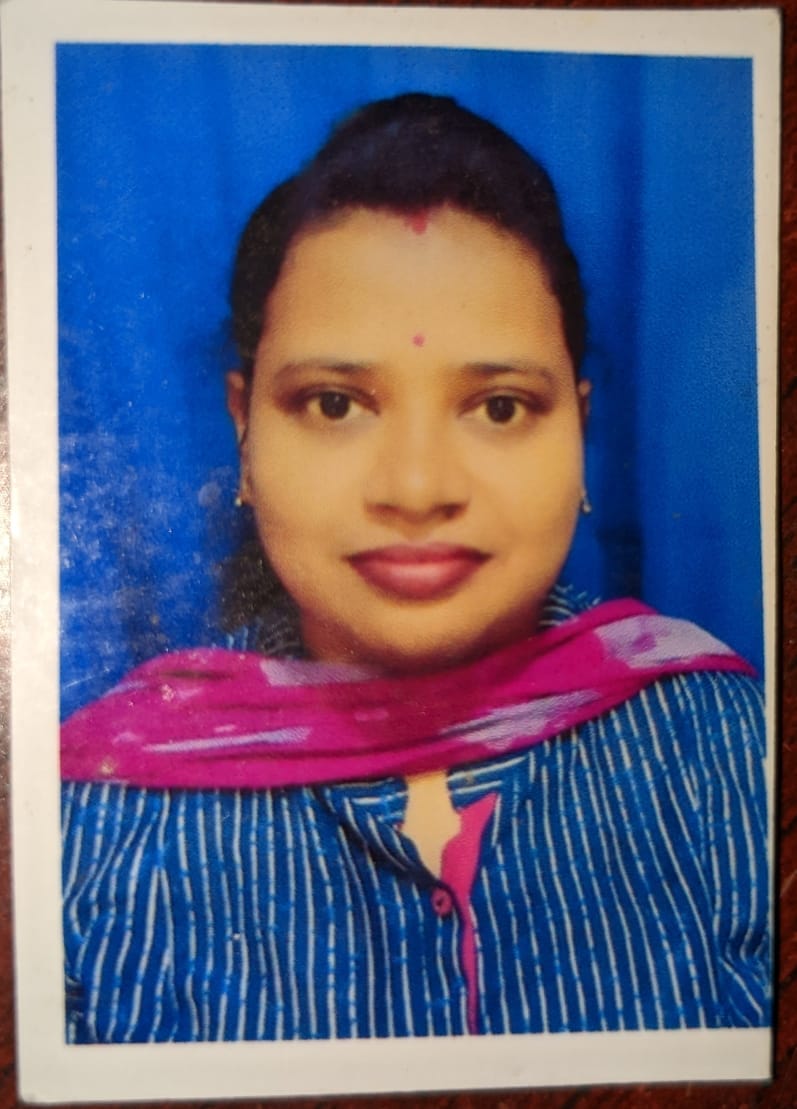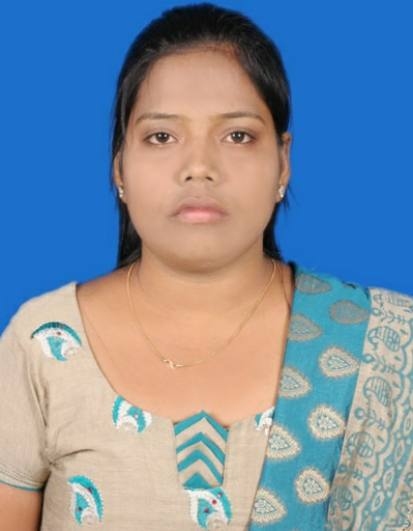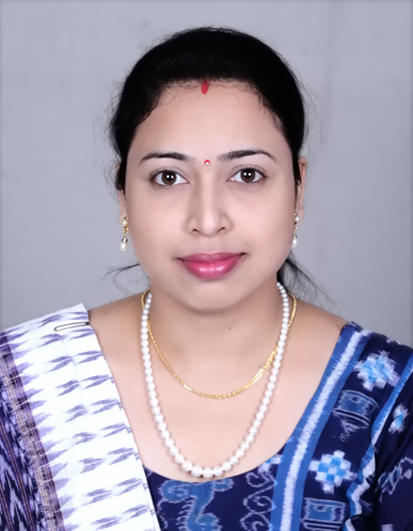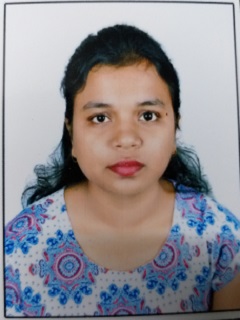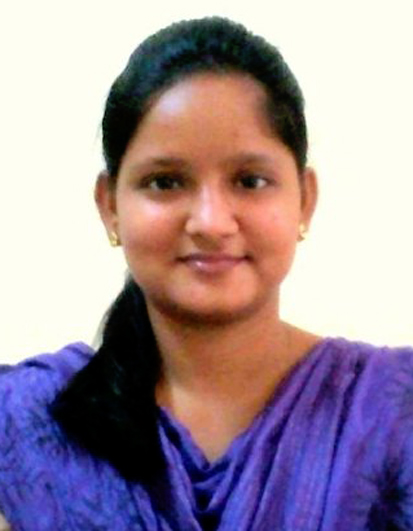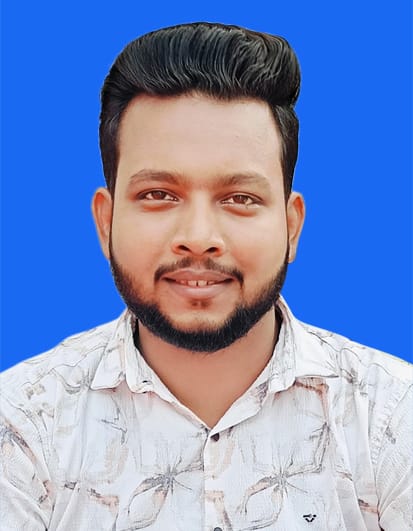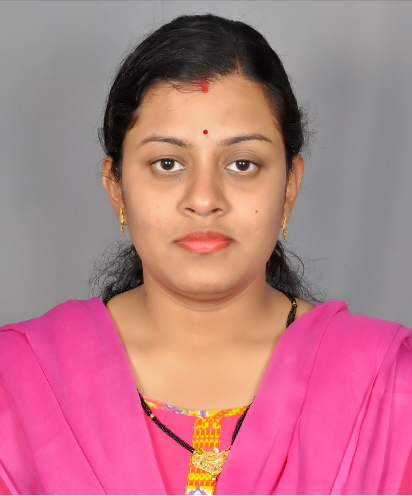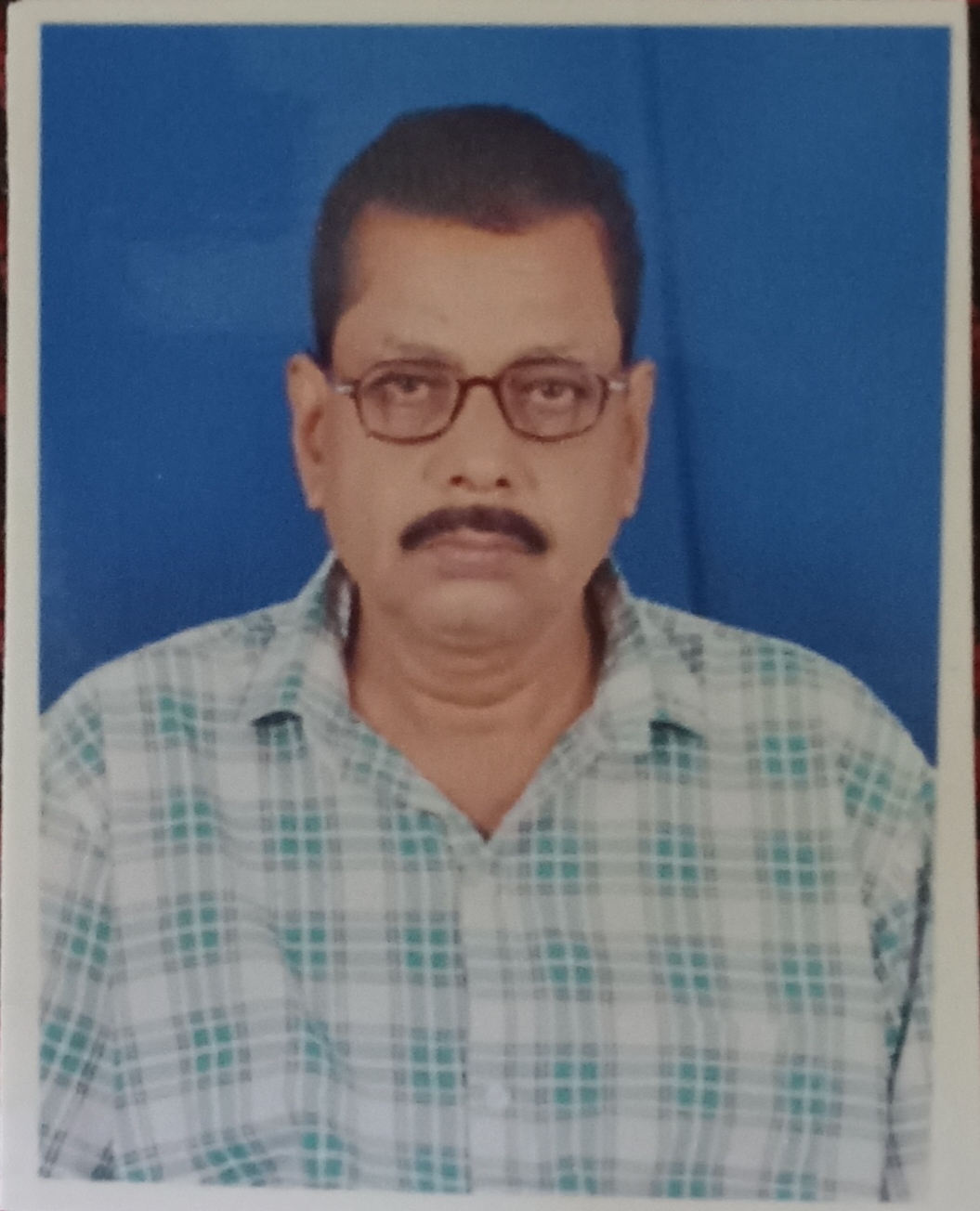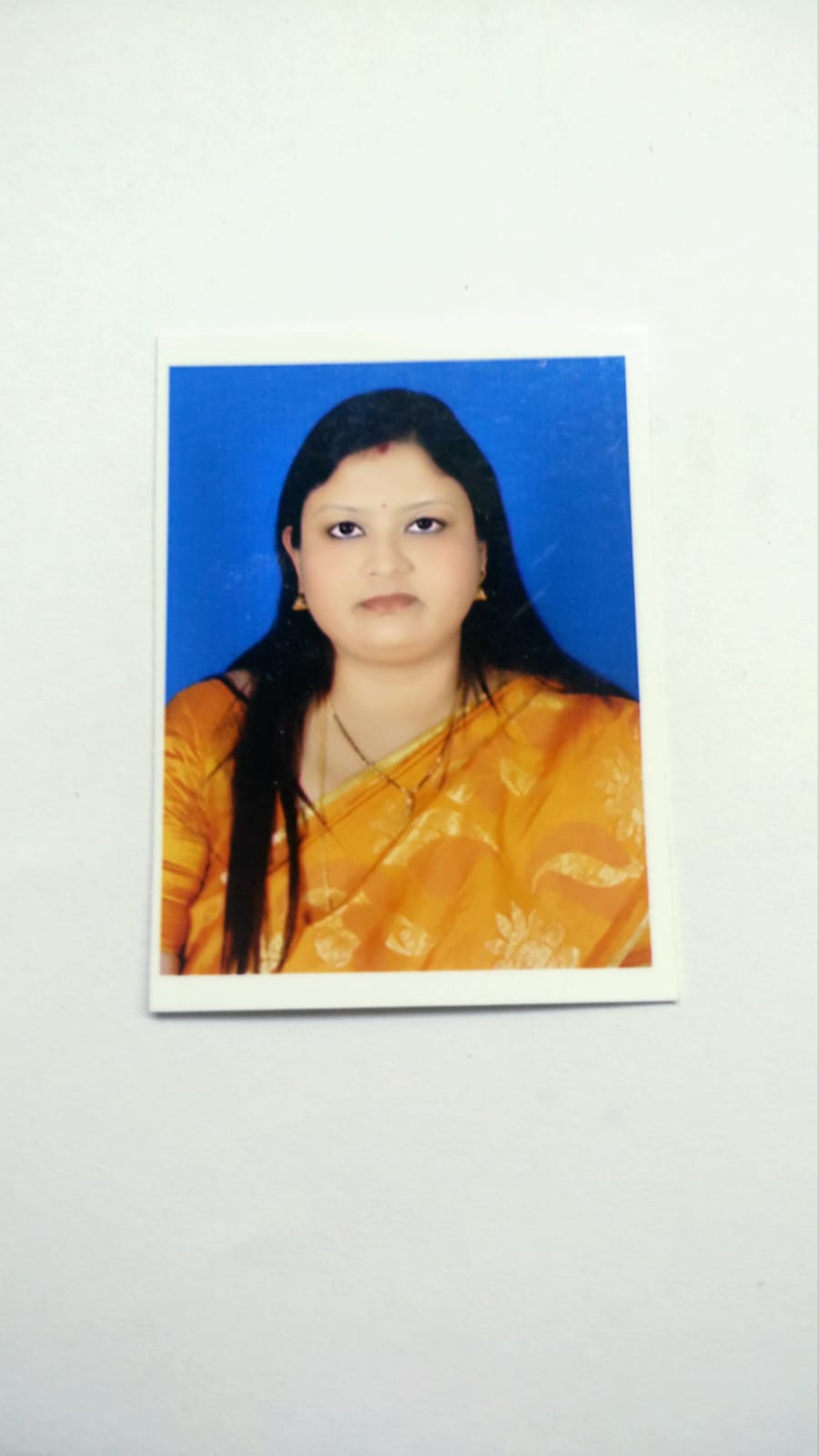Department of Electrical Engineering
Department Overview:
Welcome to department of Electrical Engineering, BOSE Cuttack. The esteemed department of electrical engineering has been playing a pioneering role in producing certified engineers of highest caliber ever since it was established in the year 1947. With the strength of inspiring & distinguished faculties the department offers 160 seats to produce future nation builders in a single academic year. It has state of the art infrastructure & laboratory facility with recurring upgradation to keep pace with the changing technologies. Students are highly encouraged to get engaged with challenging projects. The industry centric pedagogies include summer training, industrial visit, seminars and projects to match with contemporary technology. With supportive infrastructure like modern laboratories & smart classrooms, contemporary pedagogies, the department also supports students’ innovative entrepreneurial skills.
For further growth and supplement the academic infrastructure, a Memorandum of Understanding (MoU) has been signed with Schneider Electric India.
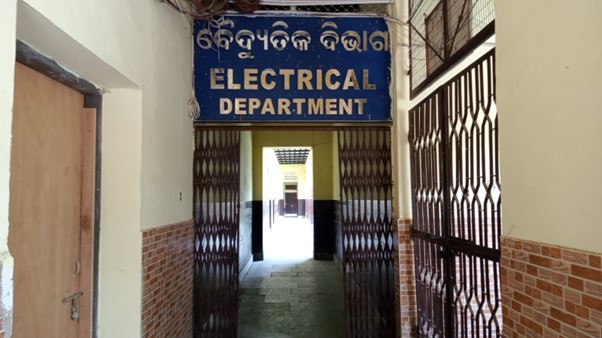
Vision:
To produce an effective and socially responsible diploma electrical engineers to serve the future needs and challenges of the society through emerging technologies involving analytical and practical skills.
Missions:
- M1: To strengthen academic infrastructure leading to quality professional through modern technology in the field of electrical engineering.
- M2: To create a passion for learning and promote innovation.
- M3: Developing simple, appropriate technologies which will be instrumental in the upliftment of rural society
Program Educational Objectives (PEOs):
- PEO1: To develop the ability to apply the fundamentals of science, engineering and math. to solve engineering problem.
- PEO2: To prepare diploma graduate to involve in higher studies, industries and to become entrepreneur in long run.
- PEO3: The ability to work as a team member and leadership skills.
- PEO4: Engage in lifelong learning, career enhancement and adopt to changing professional and social needs.
Program Outcomes (POs):
- PO1: Engineering Knowledge: - Apply the knowledge of mathematics, science, engineering fundamentals and an engineering specialization to the solution of complex engineering problems.
- PO2: Problem Analysis:-Identify, Formulate, and analyze complex engineering problems reaching substantiated conclusions using first principles of mathematics, natural sciences, and engineering sciences.
- PO3: Design/Development of solutions:-Design solutions for complex engineering problems and design system components or processes that meet the specified needs with appropriate consideration for the public health and safety, and the cultural, societal, and environmental considerations.
- PO4: Modern tool usage:-Create, select and apply appropriate techniques, resources, and modern engineering and it tools including prediction and modeling to complex engineering activities with an understanding of limitations.
- PO5: The engineer and society:-Apply reasoning informed by the contextual knowledge to assess social, health, safety, legal and cultural issues and the consequent responsibilities relevant to professional engineering
- PO6: Environment and sustainability:-Understand the impact of professional engineering solutions in societal and environmental contexts, and demonstrate the knowledge of, and need for sustainable development.
- PO7: Ethics:-Apply ethical principles and commit to professional ethics and responsibilities and norms of the engineering practice.
Program Specific Outcomes (PSOs):
- PSO1: Apply principles of engineering and laboratory skills for building, testing, operation and maintenance of electrical systems, such as electrical machines, power and energy systems.
- PSO2: Model and analyze, design and realize physical systems, components or processes related to electrical engineering systems.
- PSO3: Work professionally in power systems engineering, Electrical machinery and electrical circuits.
Laboratories of Electrical Engineering:
The department has the following laboratories equipped with up-to-date tools and equipment to impart practical instruction to the students.
- Electrical Machine I Laboratory
- Electrical Machine II Laboratory
- Circuit & Network Theory Laboratory
- Analog & Electronics Laboratory
- Power Electronics Laboratory
- Digital & Microprocessor Laboratory
- Workshop Practice Laboratory
1. Electrical Machine I Laboratory
Faculty-in-charge: Mr. Srikanta Thakur
Instructor-in-charge: Mr. Damodar Ghadei
Lab Area: 58.8’ X 33.6’
List of major equipment:
- DC Series Motor
- DC Shunt Motor
- DC Compound Motor
- DC Shunt Motor Coupled With Compound Generator
- Rectifier Unit
- 1-Φ Variac
- 1-Φ Transformer
- DC Starter
- Resistive Load
- Megger

2. Electrical Machine-II Laboratory
Faculty-in-charge:Mr. Mr. Srikanta Thakur
Instructor-in-charge: Mr. Damodar Ghadei
Lab Area: 26.11’X 19’
List of major equipments:
- Alternator Set
- Motor Generator Set
- Squirrel Cage Induction Motor
- Sleepring Induction Motor
- Synchronous Motor
- Capacitor Start Induction Motor
- Capacitor Start And Run Motor
- Universal Motor
- 3-Φ Transformer
- 3-Φ Variac
- 3-Φ Resistive Load
- 3-Φ Starter(Dol,Star Delta,Rotor Resistance Both Automatic, Semi Automatic)
- Energy Meter(1-Φ&3-Φ)
- Relay

3. Circuit and Network Theory Laboratory
Faculty-in-charge: Ms. Twinkle Pattnaik
Instructor-in-charge: Mr. Sagar Ku. Mohanty.
Lab Area: 27.3’ X 19.9’
List of major equipment:
- Function Generator
- Network Theorem Kit
- Parallel Resonance Trainer Kit
- Rc Circuit And Time Constant Kit
- Series Resonance Trainer Kit
- Low Pass Filter
- High Pass Filter
- Bandpass Filter
- Bandpass Filter
- CRO
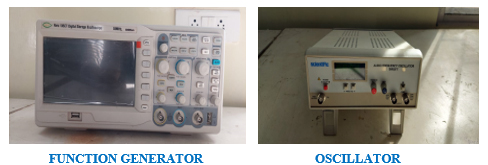
4. Analog & Electronics Laboratory
Faculty-in-charge:Ms. Twinkle Pattnaik
Instructor-in-charge:Mr.Sagar Ku. Mohanty
Lab Area: 27.3’ X 19.9’
List of major equipments:
- JFET Characteristics Trainer kit.
- Rectifier Trainer with Filter
- CRO with Probes
- Voltage Regulator Trainer Kit using Zener Diode
- BJT Biasing Trainer (fixed Bias, Emitter Bias, Voltage Divider Bias, Collector Feedback Bias)
- CE amplifier Trainer
- RC couple Amplifier Trainer
- CRO with Probes
- Function Generator
- Class A,Class B,Class C Tuned Amplifier Trainer
- Push Pull Amplifier Trainer
- Opamp Trainer Kit for Differentiation and Integration
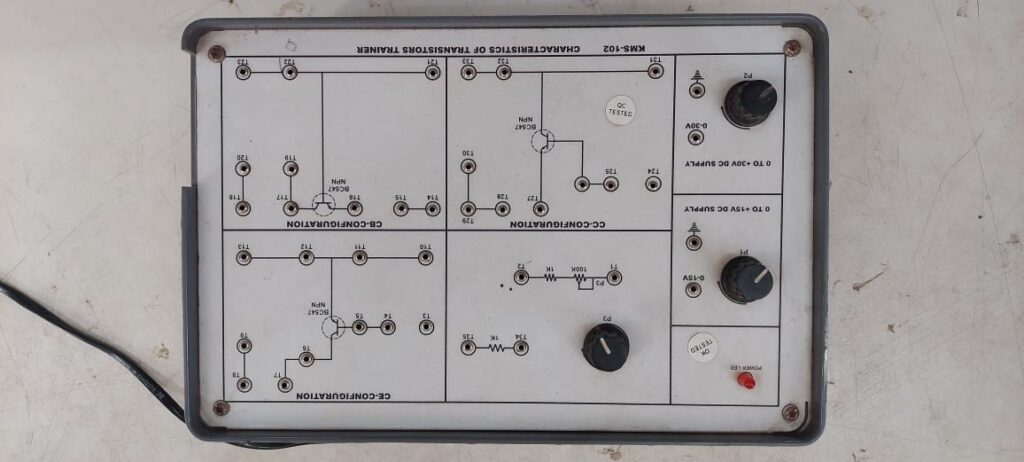
5. Power Electronics Laboratory
Faculty-in-charge: Ms. Twinkle Pattnaik
Instructor-in-charge: Mr.Sagar Ku. Mohanty
Lab Area: 27.3’ X 19.9’
List of major equipments:
- PLC trainer kit
- Traffic Light controller interfacing module
- Power Electronics trainer kit to perform
(a) Switching characteristics of a power transistor
( b) V-I characteristics of SCR, TRIAC, DIAC
(c) Drive circuit for SCR & TRIAC using DIAC & UJT
(d) Phase controlled bridge rectifier using resistive load
(e) Series Inverter
(f) Voltage source
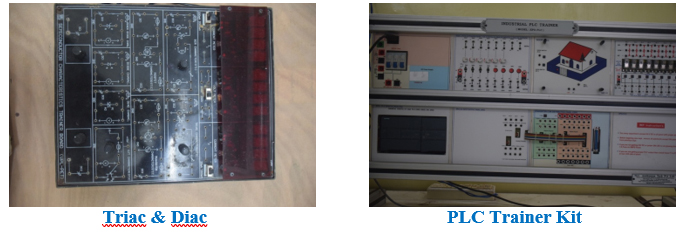
6. Digital & Microprocessor Laboratory
Faculty-in-charge: Ms. Twinkle Pattnaik
Instructor-in-charge: Mr. Sagar Ku. Mohanty
Lab Area: 19.8’ X 16.11’
List of major equipments:
- Digital electronics trainer kit
- 8085 microprocessor trainer kit
- 8255 microprocessor trainer kit
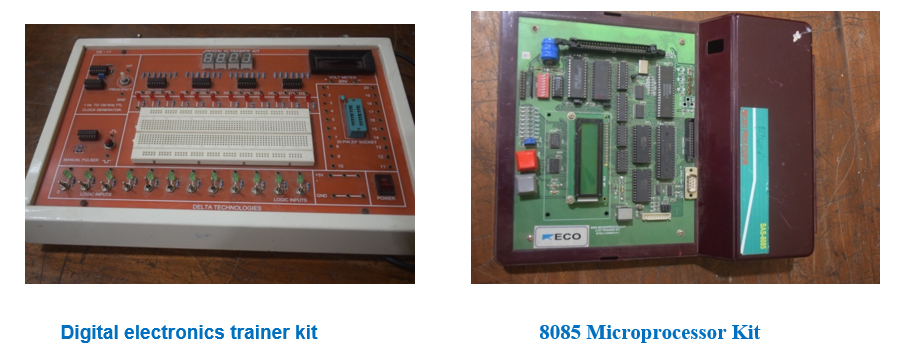
7. Workshop Practice Laboratory
Faculty-in-charge: Mr. Srikanta Thakur
Instructor-in-charge: Mr. Damodar Ghadei
Lab Area: 26.2’ X 30’
List of major equipments:
- Single Core,Twin Core,Three Core,Four Core Copper and Aluminium PVC,VIR,and Weatherproof Wire
- Flourescent Tube Light
- High Pressure M.V Lamp
- Sodium Vapour Lamp
- H Lamp
- Single Phase Motor(Fan)
- DC Motor with Starter
- DC Generator
- AC Motor with Starter
- Single Phase Induction Motor
- Three Phase Squirrel Cage Induction Motor
- Phase Wound Motor
- Single Phase/ Three phase Variac
- Megger
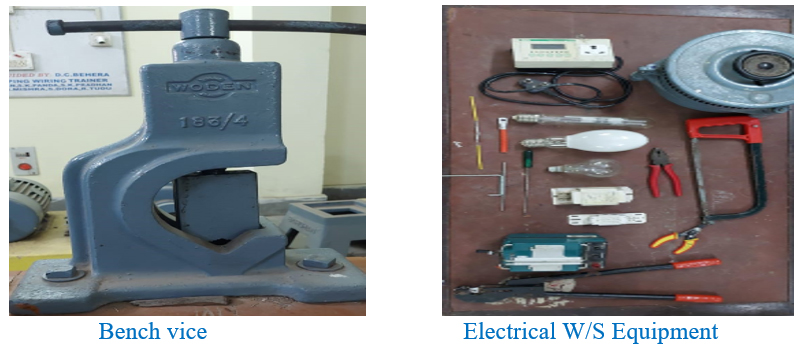
Workshops/Seminars of Electrical Engineering:
|
Conference/Workshop/STP Organised (Last 03 Years) |
||||
|
Sl. No |
Name of the Seminars/Conferences/Workshops |
Date of Seminar |
Source of Funding |
Coordinators |
|
1 |
Industrial Automation |
11.11.2022 |
CTTC,BBSR |
Snehalata Samal Srikanta Thakur |
|
2 |
EV Battery Technology |
04.01.2021 |
BOSE, Cuttack |
P.K.Dev Sagar Mohanty |
|
3 |
Case study of solar system Odisha perspective |
30/06/22 |
Genesis Engineering |
P.K.Dev Srikanta Thakur |
|
4 |
Webinar on REIMAGINING YOUTH SKILLS POST PANDEMIC |
15/07/2021 |
BOSE, Cuttack |
P.K.Dev Srikanta Thakur |
|
5 |
Solar power Plant Technology |
21.03.2023 |
BOSE, Cuttack |
Snehalata Samal Srikanta Thakur |
|
6 |
IOT Based Smart Farming Using AURDUINO UNO MICRO CONTROLLER |
23.03.2023 |
ABIT,Cuttack |
Snehalata Samal Srikanta Thakur |
Faculties of Electrical Engineering
|
|
|
|
|
|
|
|
|
|
|
|
|
|
|
|
|
Faculty wise Lesson Plans of Electrical Engineering
Name of the Faculty: Mrs. SNEHALATA SAMAL
Subject: BEE, EC-I & II, CNTGTD, SGPD, UEET, ENGG.DRAWING, EMMI
Name of the Faculty: Mr. SRIKANTA THAKUR
Subject:Electrical Machine, Circuit and Network Theory, Electrical Engineering Material, Control System.
Name of the Faculty: Mrs. IPSITA MOHANTY
Subject:EEM, CNT, CONTROL SYSTEM, AEC, DECy
Name of the Faculty: Mrs. PRIYANKA SAHU
Subject:Digital electronics and microprocessor, renewable energy systems, basic electrical, entrepreneurship management and smart technology
Name of the Faculty: Ms. Padmini Pradhan
Subject:Circuit and Network Theory
Faculty wise Lecture Notes of Electrical Engineering
Name of the Faculty: Mr. SRIKANTA THAKUR
Subject:Electrical Machine, Circuit and Network Theory, Electrical Engineering Material, Control System.
Name of the Faculty: Mrs. PRIYANKA SAHU
Subject:Digital electronics and microprocessor, renewable energy systems, basic electrical, entrepreneurship management and smart technology
Faculty wise Video Lectures of Electrical Engineering
Staffs of Electrical Engineering

|
|
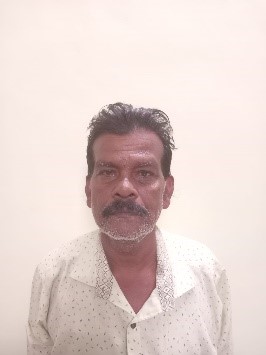
|
|
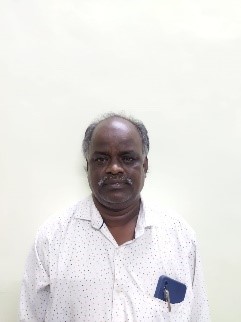
|
|
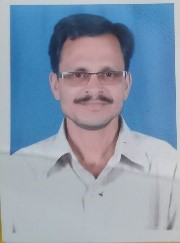
|
|



